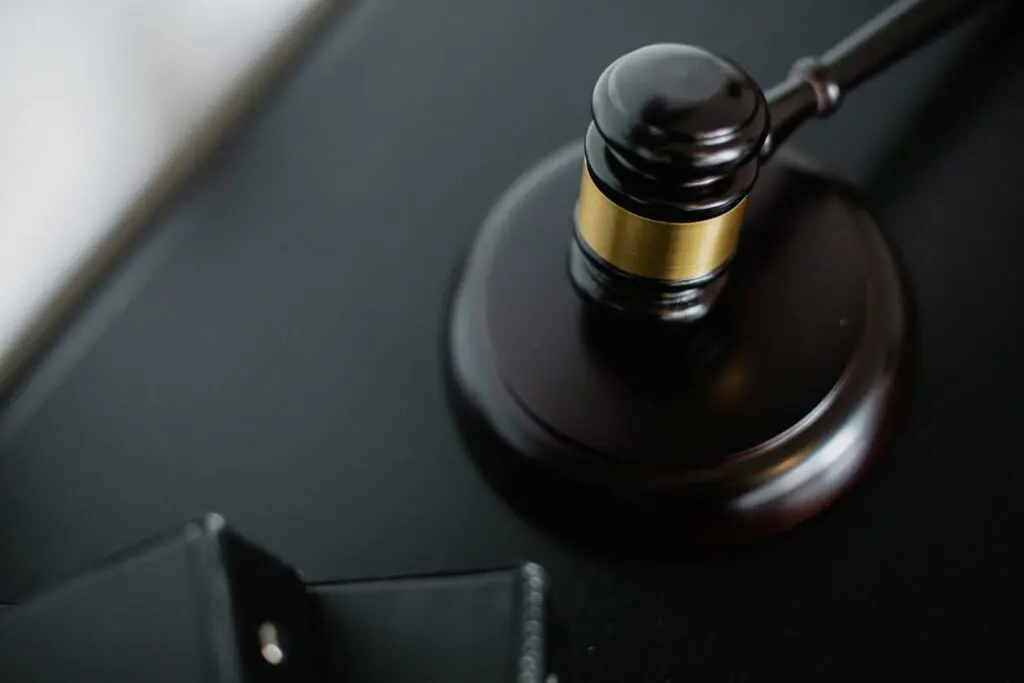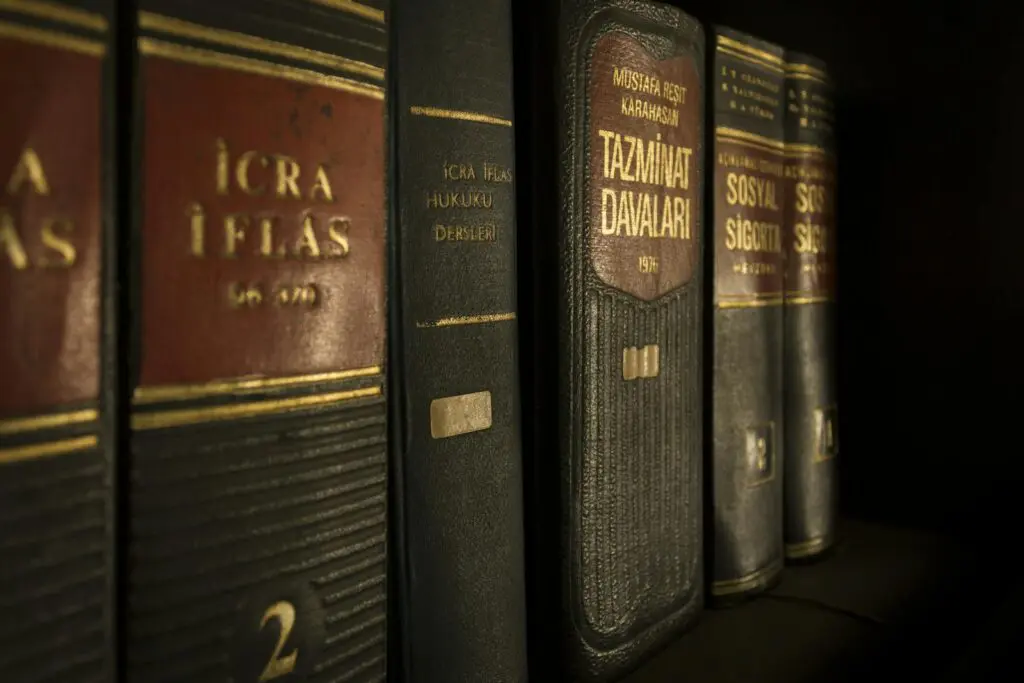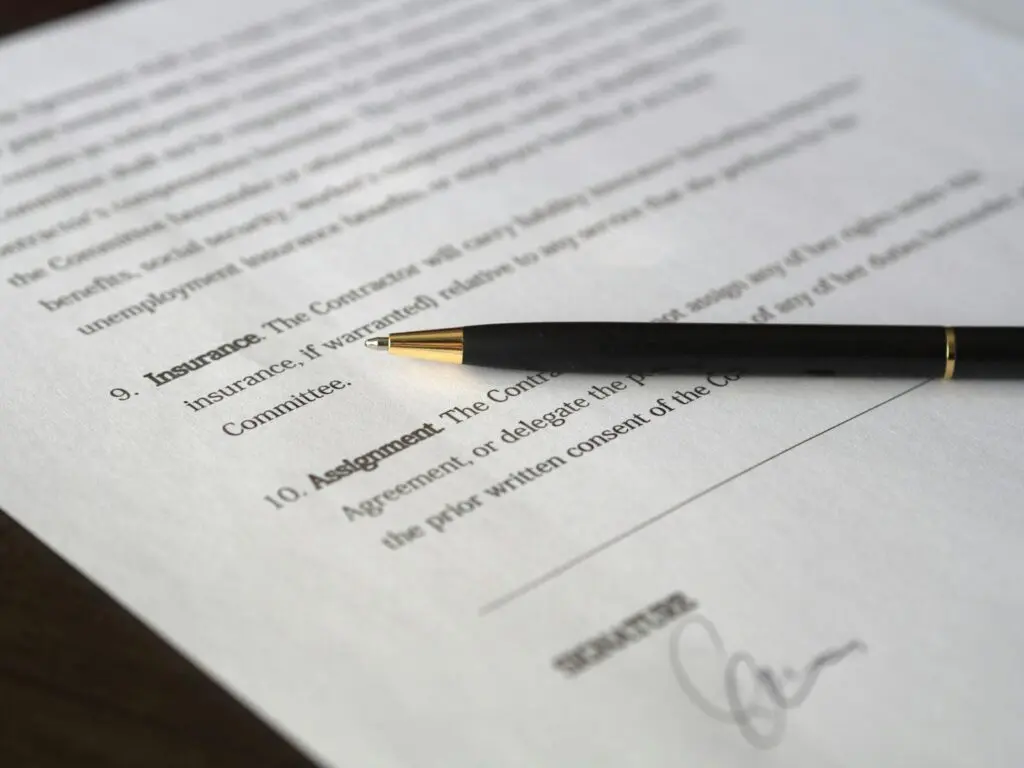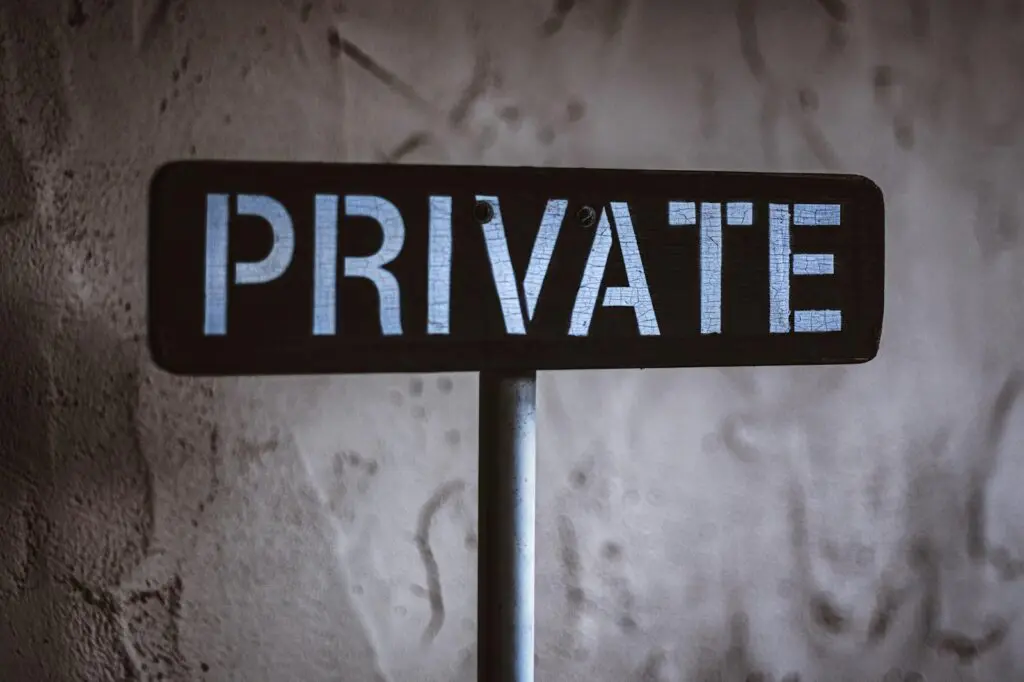
What Are Legal Rules for Writers?
Legal Rules for Professional Writers
Writing professionals must navigate various legal rules that govern their work, ensuring compliance with copyright laws, contracts, and ethical writing standards. These rules exist to protect intellectual property, maintain fair business practices, and prevent legal disputes over content ownership and publication rights.
This guide delves into key regulations every writer should know, empowering both writers and clients to navigate the legal aspects of content creation confidently.
Legal rules for writers are established by a combination of national and international bodies, including government agencies like the U.S. Copyright Office, the Federal Trade Commission (FTC), and global organizations such as the World Intellectual Property Organization (WIPO). Industry standards are also shaped by professional associations like the Authors Guild, the Society of Professional Journalists (SPJ), and the National Writers Union (NWU).
To stay compliant, writers should regularly review legal updates through these organizations, attend workshops, and consult legal resources specific to their niche. Online platforms like the Copyright Alliance, the FTC’s official site, and journalism ethics guides provide valuable insights into legal requirements. By understanding these foundational rules, writers can safeguard their rights, protect their work, and build a trustworthy reputation in the industry.
What is a Professional Writer?
The next section explores specific legal regulations that writers must follow, including copyright laws, fair use principles, contract essentials, and disclosure requirements for sponsored content.
In a rapidly evolving digital landscape, understanding legal guidelines is essential for writers and clients alike.
Why is Understanding Legal Rules and Regulations for Professional Writers Important?
Understanding legal rules and regulations is crucial for professional writers for several reasons:
- Protects Intellectual Property – Writers must understand copyright laws to secure ownership of their work and prevent unauthorized use or plagiarism.
- Avoids Legal Liability – Knowing defamation, libel, and privacy laws helps writers avoid lawsuits that could result in fines or reputational damage.
- Ensures Fair Compensation – Understanding contracts and work-for-hire agreements ensures writers receive proper payment and retain rights to their work when applicable.
- Maintains Ethical Standards – Following ethical guidelines, such as proper attribution and avoiding plagiarism, enhances credibility and professionalism.
- Complies with Advertising and Disclosure Laws – Writers involved in affiliate marketing or sponsored content must follow FTC disclosure rules to avoid legal penalties and maintain transparency with their audience.
- Respects Privacy and Data Protection Laws – Writers collecting user information must comply with regulations like GDPR and CCPA to protect consumer rights and avoid violations.
- Enhances Professional Credibility – Adhering to legal and ethical standards builds trust with clients, publishers, and audiences, leading to better career opportunities.
By staying informed about legal regulations, professional writers can protect their work, avoid disputes, and establish a trustworthy and successful career.
Why Understanding Legal Rules and Regulations for Writing Clients Is Important
Writing clients, whether businesses, publishers, or individual entrepreneurs, must also follow legal rules and regulations when hiring professional writers.
Failing to do so can result in contract disputes, copyright issues, or legal penalties. Understanding these laws ensures ethical business practices, protects intellectual property, and fosters strong writer-client relationships.

Copyright and Intellectual Property Rights
Clients must understand who owns the content once it is created. Key considerations include:
- Work-for-Hire Agreements: If the contract specifies, the client owns full rights to the content.
- Licensing Agreements: The writer may retain copyright but grant the client specific usage rights.
- Avoiding Copyright Infringement: Clients should ensure that content they receive does not contain unlicensed or plagiarized material.

Contract Law and Payment Agreements
Clear contracts protect both parties and should include:
- Scope of Work: Defines deliverables, deadlines, and expectations.
- Payment Terms: Specifies rates, invoicing schedules, and late payment policies.
- Revisions and Termination Clauses: Outlines how edits are handled and under what conditions the contract can be ended.
A well-defined contract helps avoid payment disputes and miscommunication.
3. Plagiarism and Ethical Writing Standards
Clients are responsible for ensuring that the content they publish meets ethical and legal standards. This includes:
- Verifying that the writer submits original content.
- Using plagiarism detection tools before publishing.
- Avoiding AI-generated or repurposed content that violates copyright.
Publishing plagiarized material can lead to legal consequences and damage a company’s reputation.
4. Defamation and False Advertising Laws
Clients must be aware of the legal risks of publishing misleading, defamatory, or false content, including:
- Defamation (Libel): Publishing false statements that harm a person’s reputation.
- False Advertising: Making misleading claims about products or services.
- Regulatory Compliance: Following industry-specific advertising rules (e.g., FDA guidelines for health claims).
Misleading content can result in lawsuits or penalties from regulatory agencies.
5. FTC Advertising and Sponsored Content Rules
Clients hiring writers for marketing content, sponsored blog posts, or affiliate promotions must comply with Federal Trade Commission (FTC) guidelines. These include:
- Clearly disclosing paid relationships with influencers or bloggers.
- Avoiding deceptive advertising tactics.
- Ensuring sponsored content meets ethical standards.
Non-compliance can lead to legal action, fines, and loss of consumer trust.
6. Privacy Laws and Data Protection (GDPR & CCPA)
If a client collects user data through content (e.g., email lists, comments, or analytics), they must comply with privacy laws like:
- GDPR (General Data Protection Regulation): Requires transparency in data collection for EU users.
- CCPA (California Consumer Privacy Act): Gives California consumers rights over their personal data.
Failure to follow privacy laws can result in hefty fines and reputational damage.
By understanding these legal considerations, writing clients can operate ethically, build strong relationships with writers, and avoid legal pitfalls that could harm their business.
From copyright laws and contract terms to data privacy standards and intellectual property rights, these rules are the foundation of responsible and secure content creation.

Legal Regulations for Professional Writers
Professional writers must adhere to several legal regulations that impact their work, ranging from copyright protection to contract law and advertising disclosures. Understanding these rules helps writers protect their intellectual property, avoid legal disputes, and ensure ethical content creation.

Copyright Laws and Fair Use
Copyright laws protect original works of authorship, granting writers exclusive rights to reproduce, distribute, and display their work. In the U.S., copyright protection is automatic upon creation, but registering with the U.S. Copyright Office provides additional legal benefits.
Fair use allows limited use of copyrighted material without permission for purposes such as criticism, commentary, news reporting, teaching, and research. However, the use must be transformative and not negatively impact the original work’s market value. Misusing fair use can lead to copyright infringement claims.
Fair use allows limited use of copyrighted material without permission for commentary, news reporting, or education. Writers should assess fair use carefully since it can be complex and situational.
Review details at Stanford Copyright and Fair Use
Stanford Copyright and Fair Use Center.

Contracts and Work-for-Hire Agreements
Freelance writers often enter contracts that define payment terms, rights ownership, and deadlines. “Work-for-hire” agreements transfer copyright ownership to the client, meaning the writer does not retain rights to the content unless otherwise specified. Writers should carefully review contracts to ensure they align with their business interests.

3. Defamation and Libel Laws
Writers must avoid publishing false statements that could harm a person’s reputation. Libel, a written form of defamation, can lead to legal consequences if the statements are false, published, and cause damage. Journalists and content creators should verify sources, use disclaimers when necessary, and avoid making unsubstantiated claims.

Plagiarism and Ethical Writing Standards
Plagiarism—using someone else’s work without credit—is both unethical and legally problematic. While not always illegal, plagiarism violates industry standards and can result in reputational damage, loss of clients, and potential copyright infringement claims. Writers should use proper citations, obtain permission when necessary, and utilize plagiarism detection tools.

Advertising and FTC Disclosure Rules
For writers involved in affiliate marketing, sponsored content, or product reviews, the Federal Trade Commission (FTC) requires clear and conspicuous disclosures. Writers must inform readers when they receive compensation, free products, or commissions for endorsements. Failure to disclose financial relationships can lead to legal penalties and loss of credibility.

Privacy and Data Protection Laws
Writers collecting personal information, such as email addresses for newsletters, must comply with data protection laws like the General Data Protection Regulation (GDPR) in Europe and the California Consumer Privacy Act (CCPA). These laws require transparency in data collection and give users control over their information.
By staying informed on these legal requirements, writers can safeguard their work, maintain ethical standards, and avoid potential legal challenges. Professional organizations like the Authors Guild, the Copyright Alliance, and the FTC’s website offer resources to help writers remain compliant.
Additional Legal Considerations for Professional Writers
Public Domain Works
Public domain refers to creative works that are not protected by copyright and can be freely used by anyone without permission or attribution. Works typically enter the public domain when:
- The copyright has expired (usually 70 years after the author’s death in the U.S.).
- The creator explicitly releases the work into the public domain.
- The work is a government publication (e.g., U.S. federal government documents).
Writers can use public domain works freely but should verify their status to avoid accidental copyright infringement.
Verify if content is already in the public domain at: Stanford’s Copyright and Fair Use Center
Right of Privacy and Publicity
The right of privacy protects individuals from unwanted exposure or misuse of their private information. Writers must be cautious when publishing private facts about individuals without consent, especially in nonfiction writing, journalism, or memoirs.
The right of publicity allows individuals to control the commercial use of their name, image, or likeness. Writers, particularly in advertising or biographical works, must obtain permission before using a person’s identity for promotional or financial gain. Violating these rights can lead to legal consequences, especially for public figures and celebrities.
The Role of the DMCA (Digital Millennium Copyright Act)
The DMCA is a U.S. law designed to protect copyrighted material online. It provides a framework for handling copyright infringement and includes:
- Safe Harbor Protections: Shields website owners from liability if they respond promptly to takedown requests.
- DMCA Takedown Notices: Copyright owners can request the removal of unauthorized content from websites, blogs, or social media platforms.
- Anti-Circumvention Rules: Prohibits bypassing digital rights management (DRM) technology that protects copyrighted content.
Writers should be aware of the DMCA both as a tool to protect their work and as a guideline to avoid unintentional copyright violations when using online content.
By understanding these additional legal concepts, professional writers can further safeguard their rights, ensure ethical content use, and avoid potential legal pitfalls in their work.
The Most Important Business Laws for Authors to Know
Professional writers, including freelance authors and content creators, operate as business owners and must comply with various business laws to protect their work, income, and legal standing. Understanding these laws ensures financial security, intellectual property protection, and adherence to industry regulations.
1. Copyright Law
Copyright law grants authors exclusive rights to reproduce, distribute, and display their original works. In the U.S., copyright is automatic upon creation, but registration with the U.S. Copyright Office strengthens legal protections and allows for litigation in case of infringement. Authors should be aware of fair use exceptions and licensing agreements when using third-party content.
2. Contract Law
Contracts define the terms of agreements between authors, publishers, clients, and collaborators. Key elements include:
- Work-for-Hire vs. Independent Contractor Agreements: Determines ownership of intellectual property.
- Royalties and Licensing Agreements: Defines payment structures for book sales and content usage.
- Termination Clauses and Rights Reversion: Specifies how rights revert to the author after a certain period or condition.
Reviewing and negotiating contracts carefully helps protect an author’s financial and creative interests.
3. Business Structure and Tax Law
Authors earning income from their writing must comply with tax laws and consider the best business structure, such as:
- Sole Proprietorship: Simplest form but offers no liability protection.
- LLC (Limited Liability Company): Provides personal liability protection while maintaining a flexible business structure.
- S-Corp or Corporation: Beneficial for higher-earning authors seeking tax advantages.
Writers should track income and expenses, file self-employment taxes, and understand deductions for business-related expenses, such as writing tools, marketing, and travel.
4. Defamation and Libel Law
Authors writing nonfiction, memoirs, or journalistic content must avoid defamation—publishing false statements that harm a person’s reputation. Libel refers specifically to written defamation. To reduce legal risks:
- Verify sources and factual accuracy.
- Use disclaimers where appropriate.
- Obtain releases when writing about real people.
5. Advertising and Consumer Protection Laws (FTC Compliance)
Authors involved in book marketing, affiliate links, or sponsored content must comply with Federal Trade Commission (FTC) disclosure laws. Any paid endorsements, free review copies, or affiliate relationships must be transparently disclosed to consumers.
6. Data Privacy Laws (GDPR & CCPA)
Authors collecting reader information (e.g., email lists) must follow privacy laws like the General Data Protection Regulation (GDPR) in the EU and the California Consumer Privacy Act (CCPA) in the U.S. These laws require transparency about data collection and give users control over their personal information.
The Law Soup Media Guide provides an overview of these rights for writers
Business Laws for Authors.
By understanding these business laws, authors can protect their rights, maximize earnings, and operate legally within the publishing and content creation industry.


